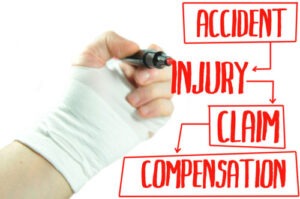
What help is available if someone else’s actions injure or harm you? In such circumstances, it’s prudent to talk to a personal injury lawyer to find out. Looking for a lawyer may seem daunting to many people. How do you even find one? How and when can you ask questions about your case? How much does it cost?
We have answers! Here is a guide to what to look for in a personal injury lawyer and how to find one that is right for your case and for you.
Know What a Personal Injury Lawyer Does
First, make sure that you’re aware of what “personal injury” is in a legal context. Not all lawyers are the same! If your sister has gone through a divorce, for example, the lawyer she used may have been a matrimonial or family lawyer, not a personal injury lawyer. Lawyers generally specialize in a particular area of law.
Personal injury attorneys, not surprisingly, specialize in personal injury. Specifically, that means that they specialize in cases involving injuries, wrongdoing, or harm done by one party against the other. The party doing the injury, wrongdoing, or harm can be an individual (such as someone who caused a car accident in which you were injured) or an organization (such as a company that manufacturers defective products, one of which injured you).
The following are specific categories of personal injury:
- Auto accidents
- Truck accidents
- Motorcycle accidents
- Bike accidents
- Pedestrian accidents
- Boat accidents
- Premises liability (injuries, harm, or wrongdoing in buildings or property)
- Nursing home negligence
- Defective products
- Dog bites
Expect More, Receive More: Legal Support That Feels Like Family
How Do You Find a Personal Injury Lawyer?
So, how do you find a personal injury lawyer? One tried-and-true way is to ask friends and family who may have used a personal injury lawyer in the past. The other way is to look at organizations that provide names of lawyers by category. The Florida State Bar Association, for example, provides a directory of lawyers that is searchable by practice area. Searching will provide you with the names of some local personal injury lawyers. You can also use Avvo.com or Google to search for personal injury lawyers in your area. It’s a good idea to look for an attorney who is located a convenient distance from where you live, as he or she will be more familiar with the area’s legal system and courts.
Research Your Potential Attorney’s Experience and Track Record
Once you obtain some names of personal injury lawyers, it’s time to research them a bit. This shouldn’t be hard, because by far the majority of lawyers have websites to make that job easy. Search for the name of your potential attorney’s firm, if he or she practices as part of a firm, or by individual name, if he or she practices as an individual. Most websites give information on their lawyers’ credentials (where they went to law school, for example) and practice area(s).
A tab or section on the website may let you look up the practice area(s). Make sure that the lawyer practices and has experience in cases similar to your own. If you were injured in a pedestrian accident, for example, make sure the lawyer you’re researching handles pedestrian accidents. While many personal injury lawyers handle a wide range of personal injury claims, not every firm or individual handles every single type; some specialize in one specific type of case.
Next, search to see if either their website or local news stories give you any insight into the lawyers’ track records of obtaining justice for their clients. What do we mean? Well, lawyers handle court cases and negotiate settlements for injured clients. Many websites will include news of court rulings and settlements, particularly large settlements. (A settlement involves a resolution of a case between the plaintiff and defendant.)
If you are looking for a pedestrian injury lawyer, and you see on the website that a law firm obtained a $1.5 million settlement for a five-year-old pedestrian struck by a car, you have evidence of the law firm’s track record of obtaining justice for clients.
One final note: if you are pursuing a personal injury case in Florida, the lawyer will need to be licensed to practice in Florida. The majority of local attorneys will meet this requirement, but it’s always worth checking. We say this only if you are searching the web and get results outside of the state.
Call or Email for an Initial Consultation
Once you have the names of some potential personal injury lawyers in hand, it’s time to set up an initial consultation with a few of them. Yes, we said a few. Just as with any significant investment of time and money, you want to make an informed choice about which lawyer is best for you. The best way to make an informed choice is to have several different options to choose from. The vast majority of lawyers will see prospective clients for a free initial consultation, so there will likely be no cost to you for a meeting. (Be sure to ask before the meeting takes place, just to be sure.)
What Should I Discuss During My Initial Consultation?
What should you look for in a personal injury lawyer when engaged in an initial consultation? Well, you will likely form an impression of both the lawyer and the firm during an initial meeting, just as you do in any business transaction. This impression can be formed by your observations about how the offices look, how you are treated, how the lawyer greets you, how he or she answers your questions, and so on.
You want to look for a lawyer that you feel can handle your case well, and also one that you feel personally comfortable with and trust completely. Does the lawyer answer your questions, for example, in a way that you feel is clear and understandable? Does he or she seem to grasp the particulars of your case and provide you with a clear assessment of it? Legal cases can take a long time, and you may be dealing with the lawyer you choose for the duration of a case.
Be sure that the lawyer doesn’t make you feel obligated to go forward. An initial consultation for people considering a legal case is a standard part of a lawyer’s job, without regard for whether he or she is ultimately retained or not. You have the right to choose the lawyer you want or to elect not to bring a legal case at all.
What to Bring to an Initial Consultation
One of the chief purposes of an initial consultation is to receive an evaluation of your prospective case. To that end, it’s important to realize that the more material and evidence you can bring about your case, the more the lawyer can evaluate it. If you don’t bring evidence, the lawyer may need to discuss generalities, which is not the most beneficial kind of a meeting for you.
It’s a good idea to bring evidence of the case and your injuries. If you have it, you should bring the following to an initial consultation:
- A crash report (if a vehicle or pedestrian crash)
- Any citations or summonses
- Any legal charges
- Pictures of your injuries
- Doctor’s notes on your injuries
- Medical bills (doctor, hospital, surgery, clinic visits, prescription medication, rehabilitative therapy, retrofitting a home for injuries, and more)
- X-rays or MRIs of your injuries
- Health insurance information
- Car or other vehicle insurance information, if relevant
- Contact information of other parties
- Insurance information from other parties, if relevant
- Pictures relevant to the circumstances of your injury (such as a defective product, a crash scene, poorly maintained premises, and so forth)
- Your notes on your injuries
- Eyewitness contact information, if any
- Evidence of impact on work, such as any time you had to take off for the doctor or to recuperate
- Any relevant news stories, such as ones that cover similar defective products or dangerous premises
- Notes on your injury’s effects on your personal life or social life
Also, you should come prepared to talk about your injury and the circumstances surrounding it. Focus on what happened and what injury or harm to you resulted. Jot down notes beforehand, so that you can talk clearly and concisely about what happened, what the injuries and harm were, who or what caused the harm, and why you feel a lawsuit may be warranted.
Show your evidence, and discuss the situation. The lawyer will provide you with an assessment of the case, such as whether you have a case or not. Not every situation in which a person is harmed results in a legal case, unfortunately. The party that caused your harm must be liable, meaning that they have to be negligent of exercising the reasonable care that a prudent person would have exercised. A court or insurance company needs to be capable of being convinced of that negligence, which means, usually, that evidence is required.
Any injuries or harm that you’ve suffered must also be directly related to the negligent party’s actions. If you had a bad back before a car accident, for example, a court or insurance claims adjuster is unlikely to agree to pay damages from the car accident to treat it. In addition, some personal injury claims go to civil court as a lawsuit, and others may be better handled (or at least handled initially) as a third-party insurance claim, meaning that the at-fault party’s insurance company should pay for your injuries and related costs. Personal injury lawyers negotiate with insurance companies and file lawsuits in civil court, so the attorney is likely prepared to handle your case either way. Finally, the lawyer will give you an option on these two conditions and on the evidence you have, as well as any other relevant circumstances.
Complete a Free Case Evaluation form now
Ask Questions
Any initial consultation is an opportunity to ask questions of the personal injury lawyer(s) you’re considering. You can ask questions about the lawyer’s practice and expertise, your case, how cases are handled generally, how the lawyer will be compensated, and so on. Any reasonable question you have is fair game.
Questions may include, but are not limited to:
- What is your experience in this type of case? (You can ask this even if you’ve done the research and know the answer.)
- What is your track record of obtaining damage compensation for clients?
- What might my case be worth?
- Can you tell me how you’ve handled previous cases similar to mine?
- Will I receive compensation for my medical bills?
- How long will it take me to receive any compensation?
- What is the time frame of a legal case?
- What should I do if I don’t have any evidence?
- Can the lawyer’s office help me get evidence together?
- How does my car insurance personal injury protection (PIP) work with a legal case (for a car accident)?
- What should I expect if I hire you (what is the procedure from here)?
- How does this work if a criminal charge is also involved?
- How are lawyers compensated for a case like this?
- Is there anything I should avoid?
The answers to these questions can help you understand your case, understand your comfort level and trust vis-à-vis the lawyer, and help you decide what to do next.
A Word About Lawyer Compensation
We understand that most individuals may not fully understand the process for lawyer compensation, and this can actually be a reason that people hesitate to approach lawyers. Such individuals may not understand the compensation structure, and they may be afraid that engaging a lawyer will be expensive.
First, as the free initial consultation implies, you can almost always see a lawyer and discuss your situation for free. Second, many personal injury lawyers are paid on contingency. Contingency means that a lawyer takes a fee out of any compensation his or her client ultimately receives from a case, such as a court settlement for damages.
You will agree beforehand on the percentage of the settlement that will go for the lawyer’s fee. In personal injury cases, if a case isn’t successful (that is, you don’t receive a settlement or judgment in your favor), you often don’t pay anything. In other words, the funds to pay a personal injury lawyer don’t necessarily need to come out of your own pocket.
If you need a personal injury lawyer and have any additional questions or concerns, hopefully the above gives you some idea of what to ask the person or law firm you decide to contact.
Call or text (239) 334-3933 or complete a Free Case Evaluation form






